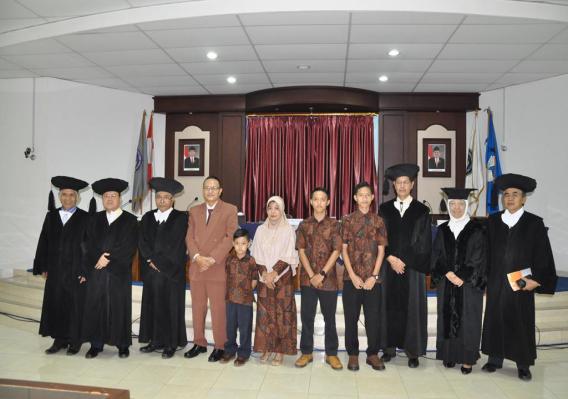Food Products Sensory Acceptability Assessment Instruments Development

Dr. Sugiyono, M.Kes. (Ph.D. student of Educational Research and Evaluation (PEP) Postgraduate Program UNY), has developed a Food Product Sensory Acceptability Assessment Instrument for food processing practices. According to him, physiological and psychological errors in the food processing process occur because few studies have provided guidelines for assessing food products.
"The physiological aspect consists of the attributes of the eyes, nose, ears, tongue, skin on the fingers and mouth. Although physiological aspects are latent, it is necessary to identify indicators measuring these attributes. Each attribute has a measuring indicator according to its function," Sugiyono said.
"Psychological aspects involved in sensory measurement are attitude, motivation, adaptation, and situational aspects. In addition, psychological aspects are latent, so it is necessary to identify indicators measuring these attributes," Sugiyono added.
From the research that Dr. Sugiyono, M.Kes, has done., there are three instruments, namely Physiological Instruments, to determine the physiological condition of lecturers or teachers practicing self-processing. Second, Psychological Instruments are used to determine the psychological state of lecturers or teachers who practice self-processing before the sensory assessment of food products. The third instrument is a sensory instrument used by raters to assess the sensory acceptability of food products, using a rubric as a guide to provide a rating for the product evaluation. The assessment procedure starts with the practical lecturer's self-readiness assessment or food processing practice teacher using physiological and psychological instruments.
Dr. Sugiyono, M.Kes. suggested that assessing food products from practicum students or vocational students should not be done alone but with the practical teaching team. The goal is to reduce subjectivity in making assessments. In addition, the use of physiological and psychological instruments is to determine the readiness of the senses and the psychological condition of the assessor to obtain precise and accurate assessment results. (Rubiman, ts-Arfian, Alina).
Source Link :https://www.uny.ac.id/berita/dr-sugiyono-mkes-kembangkan-instrumen-asesmen-akseptabilitas-sensoris-produk-makanan






